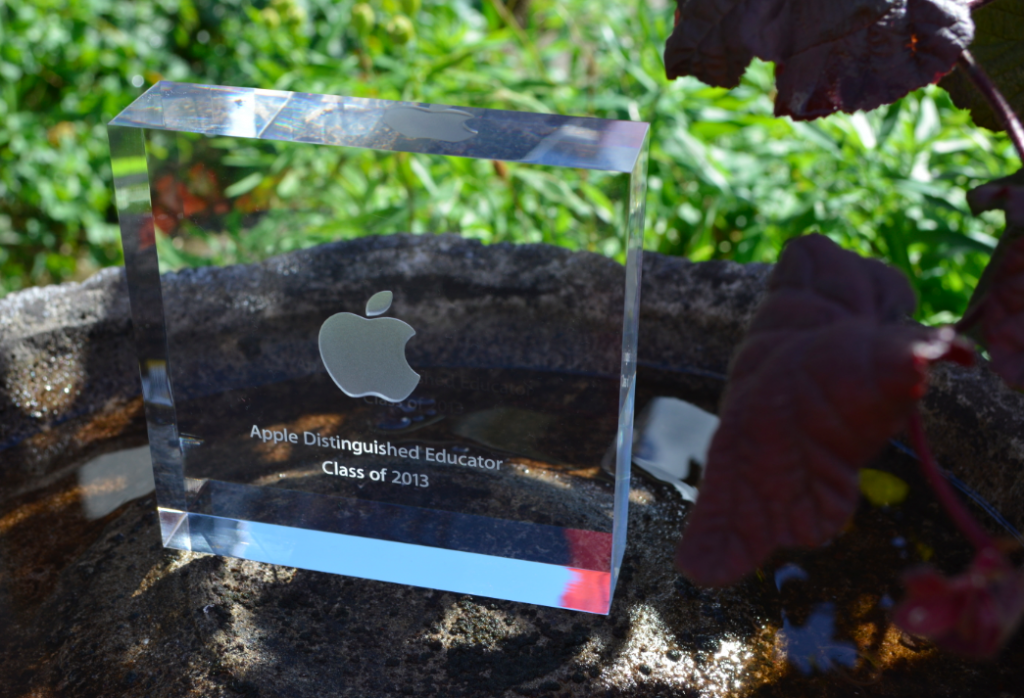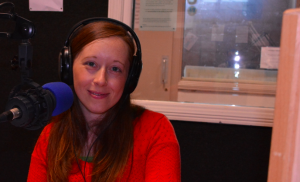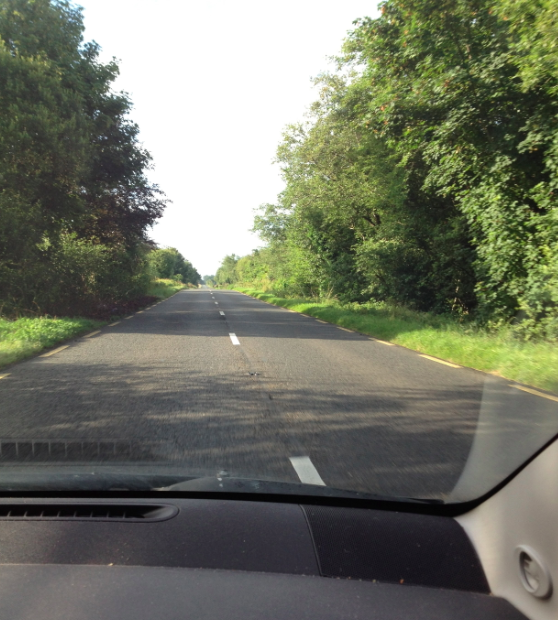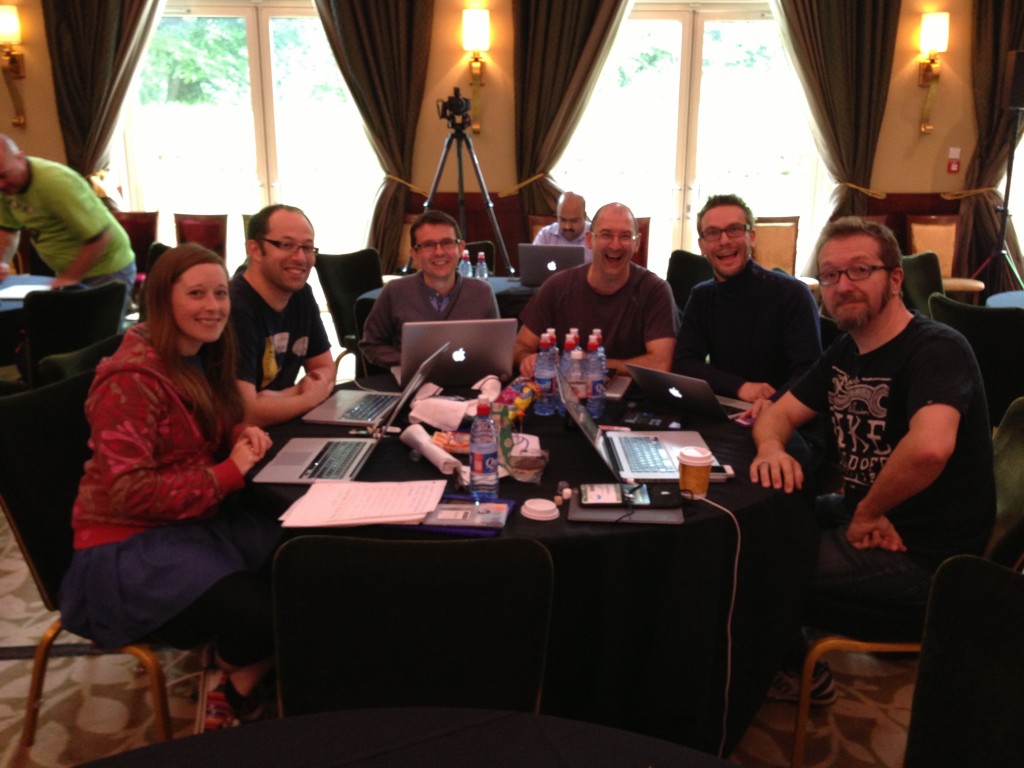Filter bubbles exist when we are fed only the info that we want to see and read, the views and content that interests us and corresponds with our view of the world.

If I use facebook, I’m only going to be exposed to posts by my friends and family. So let’s say they’ve all got bad grammar? Then I’m going to end up drowning in a sea of sentence fragments, poor spelling and indiscriminate mis-use of your / you’re / there / their / they’re. The danger is that this becomes so ‘normal’ to me that eventually I won’t even notice it. Perhaps it’s ALWAYS been normal to me, in which case good grammar, and an emphasis on the importance of good grammar at school will baffle me completely.
Or let’s say I want to search for something on the internet. If I happen to be logged in to gmail or youtube when I do my search, when I google something I’ll get personalised results. Instead of just getting the results which are most relevant to my search terms, the search will also take into account my location, previous search terms, the websites I most frequently visit etc.
The problem with filter bubbles in general is that we are less likely to be exposed to viewpoints which disagree with our view of the world, with our sense of ‘normal’.
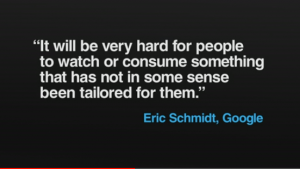
Filter bubbles aren’t new and they aren’t limited to the internet. My sister works in theatre in London and joked on a visit home recently that every single person she works with reads the Guardian. This means she gets a very liberal view of the world both from the people she works with (they’re all in theatre daahling so theoretically they ‘all’ support funding for the arts, gay marriage, a woman’s right to choose and wealth taxes) and from what she reads (the Guardian writers are pretty much the same as the theatre buffs in their political viewpoint). To balance out her world view, she’s started buying the Telegraph just so she can read opposing opinions to her own (she can’t quite bring herself to buy the Daily Mail, bless her. For more on newspapers and their political stance see here and here).
But let me repeat, in case you missed it the first time: filter bubbles aren’t new. Every child grows up in a household which is in itself a filter bubble. If I grow up surrounded by books and people who enjoy reading, then to me that’s normal. If I overhear and/or participate in conversations where the speakers use sophisticated vocabulary and express their opinions without fear of censure or ridicule, just a healthy level of debate, then that will also seem ‘normal’ to me. If healthy eating and participation in sport are a given in my household, then in most (but not all) cases, the kids who emerge from this household will also place a value on reading, conversation, healthy eating and sport (at least that’s what I’m hoping for in the case of my lil daughter!).
I had the depressing experience recently where we were reading an article in class and I asked the students to highlight any words they didn’t understand and promised I’d explain them once we finished reading the article. I ended up feeling like I was translating a passage of French. I wasn’t angry with my students; it’s not their fault if their vocabulary is limited, any more than it’s my fault if I’m not a trained ballet dancer. They live in a digital era where reading levels are plummeting and where casual spoken language (texting, youtube, facebook) dominates.
But it scared me. A lot. Our entire education system is built on a foundation which demands the ability to read, understand, interpret and respond to complex written data and information. Writing is more complex than speech, it demands greater sophistication of thought and expression. Without the precise words to capture, express and interrogate our reality, we cannot truly understand the world. And we certainly cannot succeed in the Leaving Cert.
Anyway, all of this brings me in a roundabout way to this warning. This website is in itself a filter bubble. It gives you one teacher’s perspective on Leaving Cert English. If you assimilated everything that’s on this site I have no doubt that it would assist you in achieving a good grade in Leaving Cert English.
However, I do worry sometimes when I overhear students’ conversations at school. If you’ll allow me to grossly over-generalise for a moment, students these days are OBSESSED with the ‘right’ way of approaching an exam question. They are OBSESSED with the idea that there is one revision book, or one website, or one disgustingly overpriced completely passive Easter revision course which will magically lead them to the mythical A1 standard sample answer for every possible exam question that could possibly come up in every single one of their subjects and all they need to do is learn them all off by heart and before you know it they have 600 points and a prestigious college course and a job for life and all the happiness in the universe guaranteed for life.
This is an illusion.
Take for example the topics I’ve covered for Macbeth – his soliloquies, his relationship with his wife, Kingship, imagery and the various outside influences on Macbeth’s decisions and behaviour. However, if you look at the list of common questions which come up on Macbeth, you’ll notice you also need to be able to verbalise your levels of sympathy for Macbeth and for his wife Lady Macbeth; you need to understand Banquo’s character and his role as a foil to Macbeth; you must have a detailed knowledge of the role and function of the Witches in the drama; which in itself leads into a more general discussion of the theme of the supernatural in the play; you may be asked to discuss good versus evil or any variation of that issue including your interpretation of the depiction of human beings offered by Shakespeare or a focus purely on the good characters who oppose Macbeth; you’ve got the theme of appearance vs reality; the relevance of the play to a modern audience and the question of what makes the entire play (or just one individual scene) compelling drama.
These are just the questions which have come up previously on Macbeth. We might see a new question we’ve never seen before. I’m not telling you this to freak you out – if anything I think the depth and scope of what you’re supposed to know is mind-boggling to the extent of being laughable, almost absurd. And if you are freaking out reading this, read this right now to get some perspective. With all due respect it’s only the leaving cert, it’s not life or death.
So don’t rely exclusively on what I’ve covered on the site. I’ve tried to be as exhaustive as I can, particularly for Paper 1, but I can’t predict the paper. I don’t have any spidey-tingly-feeling-in-my-bones about what might come up. I never offer predictions nor should you ever listen to them. If you cut the course and take short cuts because time and desperation demand it, that’s your decision, and hopefully it will work out for you.
But if it bites you on the ass,don’t cast around for people to blame, as thousands of students did last year when neither Heaney nor Plath were on the paper. Be pissed off if a poet you like doesn’t come up, but don’t be ‘outraged’ or ‘shocked’ or ‘appalled’.
And if you’re on twitter or facebook the night before the exams and people are offering predictions, remember, that is your filter bubble and you need to remember that when people tell you that they know what’s coming up, like all filter bubblers, they are just telling you what you want to hear, rather than something which is true.


